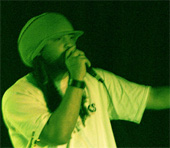 i love it when books distill all of human civilization down to a twenty four hour period and then tell us when such and such came about on the timeline. like "if humans had existed for twenty-four hours, writing would only have come along around 11:08 pm. for the twenty three plus hours -- or 144,500 years -- before this, language worldwide was (only) spoken." i find that really helps to put things in perspective. then again, sometimes it's misleading because in order to make this a relevant fact, you would also have to know what time spoken language came into existence. you would assume from this statistic that language started in conjunction with mankind but what if spoken language has only been around since 9:13pm? then it doesn't seem quite as remarkable that the written world has only been around for fifty two minutes.
i love it when books distill all of human civilization down to a twenty four hour period and then tell us when such and such came about on the timeline. like "if humans had existed for twenty-four hours, writing would only have come along around 11:08 pm. for the twenty three plus hours -- or 144,500 years -- before this, language worldwide was (only) spoken." i find that really helps to put things in perspective. then again, sometimes it's misleading because in order to make this a relevant fact, you would also have to know what time spoken language came into existence. you would assume from this statistic that language started in conjunction with mankind but what if spoken language has only been around since 9:13pm? then it doesn't seem quite as remarkable that the written world has only been around for fifty two minutes.anyway, the above quote is from "doing our own thing: the degradation of language and music and why we should, like, care." it's fascinating reading so far. it's nothing particularly new, since many books address how our formal language is being replaced by the colloquial, but when the author shows you speeches from the past compared to speeches from the present, the differences are very striking. nowadays, even our politicians and leaders, who are used to giving speeches left and right, suffer from the malady known as "craptastic speaking."
the book also briefly touches upon the difference between talking and speaking. everyone can talk. stringing together a random combination of words is talking. talking doesn't mean you're making sense though. like a baby spitting gibberish, talking could just be a jumble of random words and sounds. and it's not just babies either. many people who are beyond the baby stage of life are prone to talking incoherently -- and sadly, incessantly. these people are not speakers. speakers use the power of words to convey a point, a message, or a story. speakers are in fast decline in our day and age. speech classes used to be mandatory for school children but i think that most people now are incapable of speaking. we've gotten so used to having everything "dumbed down" around us that we can only relate to words that sound like they might come out of our mouths on an everyday basis. everyone just talks and babbles and conversates, but who among us is truly speaking?
you may not know the difference between the two until you've been exposed to a great speaker. watching someone who is proficient in the art of speech (not restricted to people merely making a speech), someone who possesses a command of the language is impressive indeed. when i happen to encounter people who are able to express themselves coherently, i think "wow, this person has really cut down on their extraneous talking motions" and i feel like i need to pay attention because whatever drops out of their mouths must be finely sifted gold. people with the composure and ability to directly convey a thought should be exalted and admired.
the book points out that speaking is a trained ability. people are not born speakers. speaking is an art form that can be taught to everyone, young, old, dumb, smart. too often, we accept the idea that speaking is something we either can or can't do. but that's not the case. speaking is like any other subject or skill that can be taught -- math, history, sports, drama, music. so, for people like me, who are not speakers but rather talkers, what can we do to get better? join a speech and debate team? practice narrowing down our thoughts into words? think before we speak? how does one begin to learn how to speak and not just merely babble? maybe i should work first on cutting down on the written babble, and then hope that translates to the verbal. or maybe it would be more efficient to do it the other way around. alternately i could also just be mute. after all, according to our sixteenth president, "tis better to remain silent and be thought a fool than to speak and remove all doubt."

0 comments:
Post a Comment